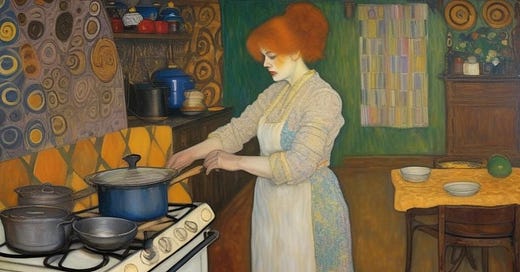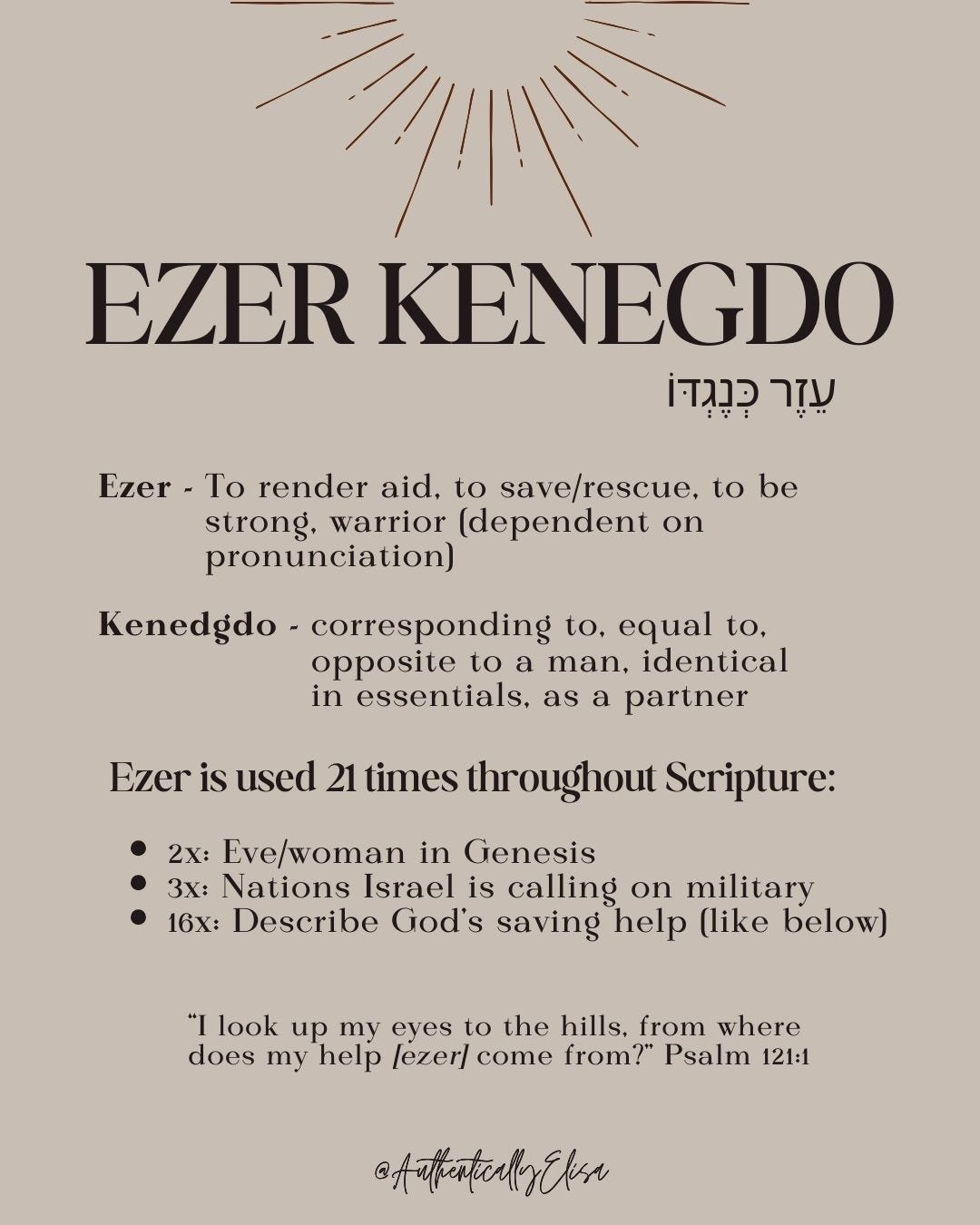The Land of Rest
Where Mary and Martha's story meets Moana's (and where identity and authenticity collide)
Each morning of late I’ve awoke with these lyrics playing in my head:
I have crossed the horizon to find you
I know your name
They have stolen the heart from inside you
But this does not define you
This is not who you are
You know who you are
Who you truly are
I am sure this song being stuck in my head has everything to do with the fact that I’ve watched the O.G. Moana approximately twenty times in the past month, thanks to its rapid rise as my toddler’s newest favorite movie. Because, you know, fish. (Which he affectionately calls “woofs”).
Malachi transitioned from Bluey to those eight hour sea-life “peaceful music” YouTube complications. It was an easy move from there to Nemo. Then Nemo to Dory, and now we love Moana, with a smattering of Little Mermaid, Lilo and Stitch, and whale documentaries. Like all children, Kai has no shame for what he loves. (It is also possible this is because he hasn’t had his heart stolen by Maui, transforming him into a lava-monster. But it could be more simplistic than that.)
Regardless, every time I hear the above song I tear up a little. It sings to the deep inside of me.
Haven’t we all been stone before? Our common experience is being dried up and fiery; we are defensive against those who’ve come near is. What wonderful news to discover that Te Kā can be restored to Te Fiti.
Poem - The land of rest
I am the one
Who forgoes being a Martha,
To sit as a learner at the feet of Jesus
Liberated to devour your offering of bread
Freed to drink of your living water
I rest without worry and to enjoy
The the meal you've already
Prepared for those like me
Who left the kitchen's work
To find you in
Your land of
Milk, honey,
And refilling,
Refreshing,
Renewing
Wine.
I am Martha.
There is a short story in the Gospels that is beyond familiar to all of the women who grew up in the American Church. Take a minute to read it if you haven’t heard it before:
As Jesus and the disciples continued on their way to Jerusalem, they came to a certain village where a woman named Martha welcomed him into her home. Her sister, Mary, sat at the Lord’s feet, listening to what he taught. But Martha was distracted by the big dinner she was preparing. She came to Jesus and said, “Lord, doesn’t it seem unfair to you that my sister just sits here while I do all the work? Tell her to come and help me.”
But the Lord said to her, “My dear Martha, you are worried and upset over all these details! There is only one thing worth being concerned about. Mary has discovered it, and it will not be taken away from her.” Luke 10:38-42 NLT
I always feel like Martha gets a bad rap in all the sermons, studies, essays, and books concerning this brief passage. Maybe it is because we’ve been so quick to side with Jesus, like the teachers’ pets, self-righteously dismissing Martha for Mary.
We pit these sisters against each other, offering commentary after commentary that is so black and white, approving of one and condemning the other. In real life, I believe the whole scene was more gracious than we give it credit for. In real life, there are tones and facial expressions we’ve missed. In real life, Jesus extends an invitation to Martha of grace.
In real life, I am Martha.
I know this because I’ve lived a near identical scene in my home a hundred times.
Sure, it was my husband, not Jesus, putting his hands on my shoulders and pulling me away from the stove. He’d turn me to face him until my eyes caught his, tuck my hair behind my ears, and gently command me to rest. It was an invitation to stop trying to juggle every piece and place all the pieces perfectly together just so. It was the offering of another path—where I could let the expectations go in favor of breathing.
Really, it is always an invitation to come alive again.
What if the next right thing isn’t right?
Not only do I feel defensive of Martha because I relate to her, but because she is condemned by us for doing exactly what she was supposed to. She was doing what was expected and required of her within her culture. This is what she would be honored for!
And it, just in case that wasn’t enough, there was just work that had to be done. People had to be fed. What woman hasn’t had this hosting-caregiving responsibility piled on her shoulders?
And yet, despite Martha being the first human to declare that Jesus “is the resurrection and life,” in brilliant blinding faith, most people only remember her through the lens of this story. We see her negatively for just doing the right thing.
Is there not a major injustice in this? I want to shout through history back at her, “Yes, Martha! It is, unfair! I see you slaving away for all the guests you probably had no choice but to host!”
Martha is all women: carrying our mental loads, our housework, our children, our “real” jobs, and all the cultural expectations to be beautiful, thin, smart, demure, and submissive to boot!
For literal heaven’s sake, Jesus! She just needs a bit of help! And sure, maybe she sounds a bit passive-aggressive, but who hasn’t? She gets 50 points in my book just because she is brave enough to point out she can’t do this all alone!
And yet…
Despite her very real life, and real story—whatever it actually went down like—we still need this short narrative as a parable.
Poem - Ezer Kenegdo
I am the one
Unapproved by
My culture's
Expectations
Bestowed with
Authority and anointing
That could only come from you
Let it be I who is completely trusting
Walking in submission to none but you
Give me bravery to defy any
Gendered responsibilities
All norms and regulations
That keep me from following
I kneel here at your side
Confident and secure
For I am approved of
And invited by
The one Voice
Who matters
For in spite of
The ways of man
And the cages
Built to ensnare me
I am a strength equal to
And partner designed
Fully delighted in
By you
I am Mary
Like all parables, the story of Mary and Martha has a moral. As much as I want to fight for Martha to be seen justly, I understand our need to compare these women in black and white strokes.
This narrative is necessary to open our imagination. It bestows upon us a new identity—one that proclaims that we belong. We are students with equal standing under the gentle, yet counter-cultural rabbi.
To exchange my cares for a seat at rest is an incredible possibility. Through it I become Mary.
Take up space
One of our old housemates used to share with me how important it was for her to feel like she could take up space. Space for her body, and space for her stuff. I had never experienced this need, but we made a plan for to "take up space" in our home.
It was healing for her.
Although I haven't ever felt like I wasn't allowed to take up physical space, I have felt like I wasn't allowed to take up space in another sense.
To be authentic. To always be honest instead of code-switching. Like I was allowed to use my gifts. Like I was welcomed to lead.
This version of "taking up space" is a huge part of my story.
I am starting to get better at taking up space. Not for the purpose of squishing anyone out. Not for stomping on toes. Not to be rebellious. Taking up space doesn’t mean don't have to trump everyone else’s space; they are allowed to have equal play and equal say. I believe there's room at the table for all of us.
I take up space by just being who I am designed to be.
Being authentic
Recently, I’ve had many conversations where I didn't hide me or what I believe. I was still respectful of our differing opinions, but I shared my perspective. I didn't stay in the box I was expected to stay in. In that sense, I took up space.
My perspective on women’s roles took up space
My perspective on vaccinations took up space
My perspective on psychology took up space
My perspective on church took up space
My perspective on politics took up space
My perspective on justice issues took up space
I was surprised how well I was responded to by some. Others were shocked by my audacity—I saw a quizzical expression on their brow. But they didn't walk away. They listened to something outside their paradigm, even if not for a long time.
I think now I'd be okay if they did walk away.
I finally believe that my thoughts, my ideas, and my words matter, too—even if not fully formed. Even though I have not arrived and remain a learner.
It is good that I take up space—just as it is good for you to do so. If we choose to rest at Jesus’ feet, letting him be our primary teacher, he will keep transforming us into his image. Otherwise, we won’t take up space. We will simply model our shape to fit into the opinions of others.
“The glory of God is [wo]man fully alive.” - St. Irenaeus
A new name
About a month ago, I was praying out in a eucalyptus grove about the concerns in my own life. Suddenly, out of nowhere, I knew that I needed to tell a friend, an older unmarried woman that she is an Ezer Kenudo with God, and ask our friends to join us praying with it over her as a blessing.
I felt nervous, but I knew the cost was low. I spent three awkward minutes sharing with our group, literally reading from the research of other theologians about this term that has been frequently translated to define women as subordinate helpmates. But being told she was an Ezer Kenudo met her at her core. Sobbing and grateful; raw and healing—this new identity was revolutionary. It replaced turmoil she lived with through her seventy years.
I got it. For years ago it changed my life, too.1
Rest from within
Maybe this comes with age, or wisdom, or whatever. But the more I know who I am the more I am at rest. There is a strong correlation between our identity and our ability to be at peace. I’ll go so far as to say it is a cause and effect relationship.
And I don’t just mean whatever identity we choose for ourselves for a few years, roles that then will shed like a dirty garment a decade or two down the road. Nor am I talking about experimental interests, attempts at self-defining, and practices of self-actualization at any given time.
I am unsure of how to describe this type of identity-finding. It is the deep calling out to the deep inside us that then it clicks. It is a voice from Heaven shaking our souls so vigorously that what was already inside us bubbles up to name us. Even if we had an inkling beforehand, we didn’t totally know who we were. And suddenly we do. And it makes sense because it is who we are.
We feel excited and in awe. And as our confidence grows, we take up the space we were formed to fill. And the angst that used to push us to prove ourselves and meet expectations has lessened. Because we belong. And we know who we are. And we've become comfortable in our own skin.
I marvel at this transformation as I bounce off literary walls in my attempts to describe this experience. And I still have fallen short. That’s okay, though.
For tomorrow, when I act like Te Kā in Moana or I feel crushed by Martha’s load—I will remember I’ve been invited into a new way of rest. And I’ll have the confidence to take up the space that my identity has bestowed on me.
This Month’s Giveaway
I sent this a little late, so I am pulling for November’s giveaway tomorrow evening (12/2). You will also be entered in the next four giveaways. You just choose to do one thing from the book launch list here.
This month’s giveaway includes the Live Slowly, by Jodi Grubbs, earrings from Chosen & Free Co., a candle from Joy Marker, a fair trade chocolate bar, a “you matter” sticker pack from Sprinkles of Kindness, and a copy of The Life Mapping Workbook. Enter here!
This week on Patheos: Should Christians Let Politics Define Their Friendships?
This week on
- Restful ChangemakingAnd this made our marriage for the better, too!







